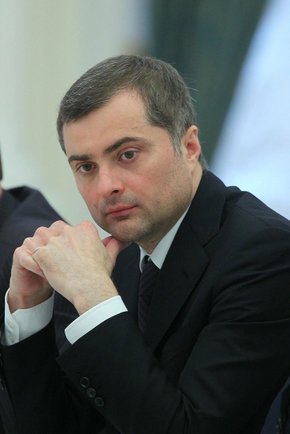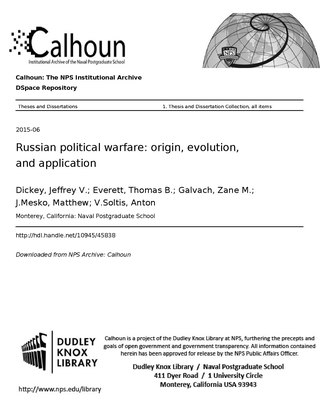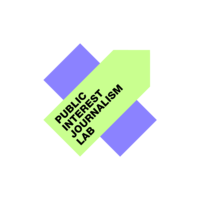
Leonid Danylovych Kuchma is a Ukrainian politician who was the second president of Ukraine from 19 July 1994 to 23 January 2005. Kuchma's presidency saw numerous corruption scandals and the lessening of media freedoms.

Georgiy Ruslanovych Gongadze was a Georgian-Ukrainian journalist and film director who was kidnapped and murdered in 2000 near Kyiv. He founded the online newspaper Ukrainska Pravda along with Olena Prytula in 2000.

Volodymyr Mykhailovych Lytvyn is a Ukrainian politician best known for being Chairman of the Verkhovna Rada, the Ukrainian parliament. Having previously served in that position from 2002 until 2006, he was re-elected in December 2008 after his party agreed to join the former coalition of Yulia Tymoshenko in an expanded capacity and stayed Chairman until December 2012. From 1994 to 1999, Lytvyn was the aide to President Leonid Kuchma and, later, the head of his office.
(Major) Mykola Melnychenko was a bodyguard of Leonid Kuchma, an officer of the State Security Administration.

The Cassette Scandal was a Ukrainian political scandal in November 2000 in which Ukrainian president Leonid Kuchma was caught on tape ordering the months-earlier kidnapping of journalist Georgiy Gongadze, whose decapitated corpse had recently been found. The scandal was one of the main political events in Ukraine's post-independence history, dramatically affecting the country's domestic and foreign policy. The scandal, triggering the Ukraine Without Kuchma protests, also began a slow and gradual shift of Ukraine's political and cultural orientation from Russia towards the West, although this only became more pronounced after Euromaidan in 2013-2014. The scandal also damaged Kuchma's political career.
The Kyiv Post is the oldest English-language newspaper in Ukraine, founded in October 1995 by Jed Sunden.

Ukrainska Pravda is a Ukrainian online newspaper founded by Georgiy Gongadze on 16 April 2000. Published mainly in Ukrainian with selected articles published in or translated to Russian and English, the newspaper is tailored for a general readership with an emphasis on the politics of Ukraine.

Yuriy Fedorovych Kravchenko was a Ukrainian General of Internal Service and statesman, serving as the country's Minister of Internal Affairs (1995—2001). In 2000, while he was serving as the Minister of Internal Affairs, Kravchenko became directly involved in the murder case of Georgiy Gongadze and the subsequent "Cassette Scandal." Kravechenko later was the governor of the Kherson Oblast (2001—2002) and Head of the State Tax Administration of Ukraine (2002—2003).

Kyiv University or Shevchenko University or officially the Taras Shevchenko National University of Kyiv, colloquially known as KNU, is located in Kyiv, the capital of Ukraine. The university is recognized as the most prestigious university of Ukraine, being the largest national higher education institution. KNU is ranked within top 650 universities in the world. It is the third oldest university in Ukraine after the University of Lviv and University of Kharkiv. Currently, its structure consists of fifteen faculties and five institutes. It was founded in 1834 by the Russian Tsar Nikolai I as the Saint Vladimir Imperial University of Kiev, and since then it has changed its name several times. During the Soviet Union era, Kiev State University was one of the top-three universities in the USSR, along with Moscow State University and Leningrad State University. It is ranked as the best university in Ukraine in many rankings. Throughout history, the university has produced many famous alumni including Mykola Lysenko, Nikolay Bunge, Mykhailo Drahomanov, Mykhailo Hrushevskyi, Nikolai Berdyaev, Mikhail Bulgakov, Ivan Schmalhausen, Theodosius Dobzhansky, Viacheslav Chornovil, Leonid Kravchuk, and many others. Taras Shevchenko himself, banned from educational activities for political reasons, worked for the university as a field researcher.

Myroslava Gongadze is a Ukrainian journalist currently living in the United States. Her husband, journalist Georgiy Gongadze, was abducted and murdered in 2000. Since then she has been a prominent advocate for freedom of the press and protection of the safety of reporters in Ukraine, and has continued to work for justice in the case of her husband's murder.

Vladislav Yuryevich Surkov is a Russian politician and businessman. He was First Deputy Chief of the Russian Presidential Administration from 1999 to 2011, during which time he was often viewed as the main ideologist of the Kremlin who proposed and implemented the concept of sovereign democracy in Russia. From December 2011 until May 2013, Surkov served as the Russian Federation's Deputy Prime Minister. After his resignation, Surkov returned to the Presidential Executive Office and became a personal adviser of Vladimir Putin on relationships with Abkhazia, South Ossetia and Ukraine. He was removed from this duty by presidential order in February 2020.

Olena Yuriivna Prytula is a Ukrainian journalist, the former editor-in-chief, owner of the Ukrayinska Pravda, an influential online newspaper that focuses on news and political coverage in Ukraine.

Aaron Glantz is a Peabody Award-winning radio, print and television journalist who produces public interest stories. His reporting has sparked more than a dozen Congressional hearings, a raft of federal legislation and led to criminal probes by the Drug Enforcement Administration, the FBI and the Federal Trade Commission. Because of his reporting, 500,000 fewer U.S. military veterans face long waits for disability compensation, while 100,000 fewer veterans are prescribed highly addictive narcotics by the government.
The Institute for Human Sciences is an independent institute for advanced study in the humanities and social sciences based in Vienna, Austria.
Hromadske is a digital broadcasting station in Ukraine that commenced operations on 22 November 2013. The station was announced in June 2013 by 15 journalists, before commencing operations on 22 November. It is registered as an NGO.

The propaganda of the Russian Federation promotes views, perceptions or agendas of the government of Russia. The media include state-run outlets and online technologies, and may involve using "Soviet-style 'active measures' as an element of modern Russian 'political warfare'". Notably, contemporary Russian propaganda promotes the cult of personality of Vladimir Putin and positive views of Soviet history. Russia has established a number of organizations, such as the Presidential Commission of the Russian Federation to Counter Attempts to Falsify History to the Detriment of Russia's Interests, the Russian web brigades, and others that engage in political propaganda to promote the views of the Russian government.

Peter Pomerantsev is a Soviet-born British journalist, author and TV producer. He is a Senior Fellow at the Institute of Global Affairs at the London School of Economics, where he co-directs the Arena program. He is also an associate editor at Coda Media, a position he has held since at least 2015. Pomerantsev has written two books about Russian disinformation and propaganda: Nothing Is True and Everything Is Possible (2014) and This Is Not Propaganda (2019).

Coda Media is a New York-based news website, headed by Natalia Antelava, a former BBC correspondent, and Ilan Greenberg, a magazine and newspaper writer who served as a staff reporter for The Wall Street Journal. Peter Pomerantsev, a British journalist and TV producer, serves as the editor-at-large.

Nataliya Petrivna Gumenyuk is a Ukrainian journalist and author specializing in foreign affairs and conflict reporting. She is a co-founder and CEO of the Public Interest Journalism Lab, and a co-founder of the independent media Hromadske. She is the author of several books, including The Lost Island: Tales from the Occupied Crimea (2020).

Manisha Ganguly is an investigations correspondent at The Guardian, specialising in Open Source intelligence. She previously worked as investigative documentary producer for the BBC, where she won multiple awards for her work exposing war crimes. She lives in London, United Kingdom.
















